Kerima Nashat handed me a heavy lamp filled with small, familiar-looking objects. “Can you guess what these are?” she asked. I was stumped. After a few wrong guesses, she smiled and finally revealed the answer: “They’re bullets from Wadi Degla.” She’d gathered them with her daughter, spray-painted them, and glued them to the interior of the lamp with epoxy. The result? A beautiful silver lamp perfect for complementing any modern living space.
Only a thrift shop owner would know how to create something so beautiful from something that would normally end up in a landfill.
Nashat is the co-owner of The Space, a thrift shop located in Maadi. Even though the shop officially opened its doors in 2016, it was a vision in the making many years prior.
A Passion Turned Career
During her previous job as a teacher at an American school, Nashat was assigned a project where she had to create a plan for a sustainable school. The plan included a small, student-run shop selling sustainable products, but the 2011 revolution occurred soon after and the shop never happened.
She began growing aware of the importance of sustainability and decided to start utilizing her talents to make jams and lamps. In 2014, her husband suggested selling them from their garage.
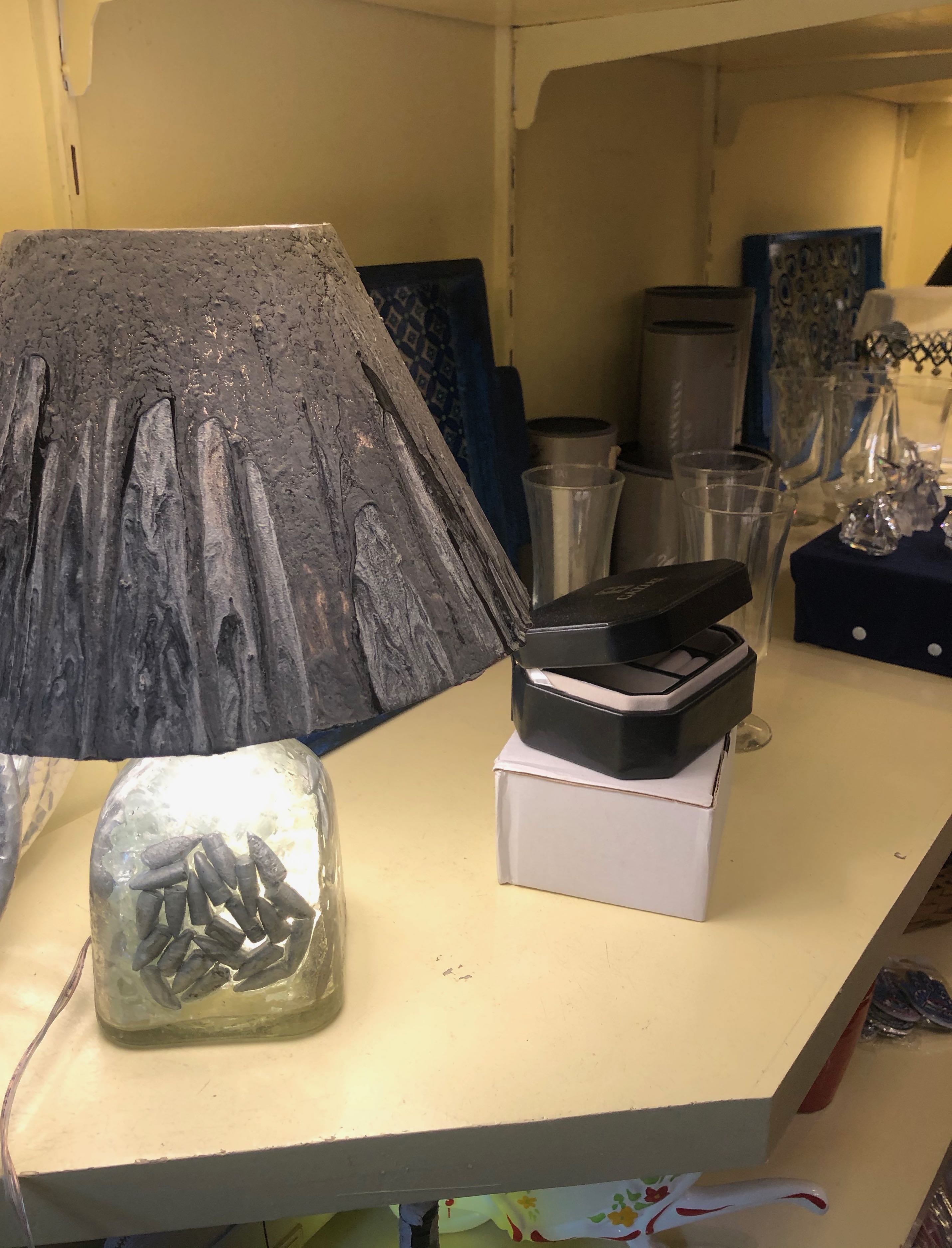
“I told him ‘I can’t have a shop for just jams and lamps,’ and then I remembered the shop idea,” she recalled. She joined forces with Menar Mebed and Kay Samahy and they decided to use the garage to sell thrift items, local crafts, charity items, and products made by at-the-time small businesses such as Black Lotus.
“Anything we sold had to serve the economy, the environment, or the society,” she said. The shop was an informal trial run, and two years later Nashat and Samahy found the perfect Maadi spot where they could make the shop official. Mebed, on the other hand, did not join the duo in order to focus on her specialty food store Minnie’s.
Nashat’s primary goal was to create a “thrift shop for everybody,” because the only one she’d seen in Cairo was not open to Egyptians; purchases were only allowed using a foreign passport.
She knew she needed support in managing the shop successfully due to the meticulous logistics required. “I had no idea how much work was involved in running a shop, especially a thrift shop; it’s a lot more [complicated] than a regular shop where you just get quantities [of the same items],” she said.
Through a twist of fate, she found out her gym had closed down and recalled how it was so well run by its manager, Magda Florio. The pair discussed the potential of running the thrift shop together, and they’ve been co-managing it for four years now. Other members of the team include Lisa Gonzalez, who used to run a thrift shop herself, and Yara Hossam, who works at the shop and has built many meaningful relationships with its clients.
A Home for the Pre-Loved
Tucked away in a small Maadi street and slightly camouflaged by the trees, the storefront of The Space is always a treat for the eyes.
“Kerima makes sure that the storefront is always theme-based and relevant,” Florio commented. The last storefront was inspired by a dream Nashat had about a garden.
What you’ll find once you walk in is anyone’s guess; the items on display change from one week to the next. This time, the first item to catch my eye was a short black dress complemented by a layered beaded necklace. Next week it might be a jumpsuit, a statement blouse, or anything else that finds its way through the shop’s doors.
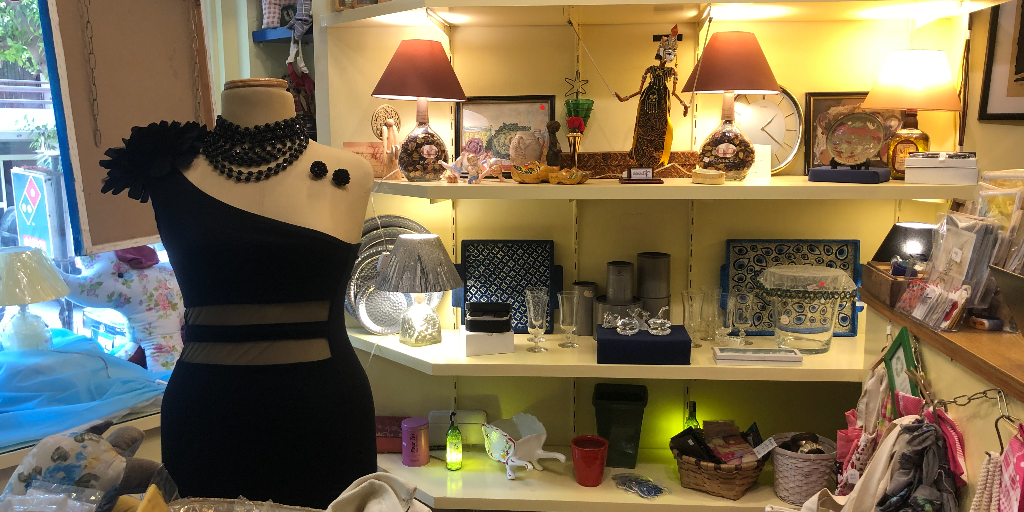
While talking about The Space, the pride in Nashat’s eyes is almost palpable. Behind her were rows and rows of different items of clothing hung on the racks, each with a history and story of its own.
The shop sells items on a consignment basis, where people bring in their clothing, bags, wallets, accessories, or “elegant junk,” which could be anything from home accessories to decorative items. Once the price is set, the item is put on display and awaits its journey to its new home. Once sold, the price is split equally between the shop and the seller. This excludes the charity items.
Because the shop is small in size and the owners care about providing clients with a variety of sizes and tastes, items only stay in the shop for one month. If they remain unsold after a month, they are either discounted to half the price or the owner can take them back.
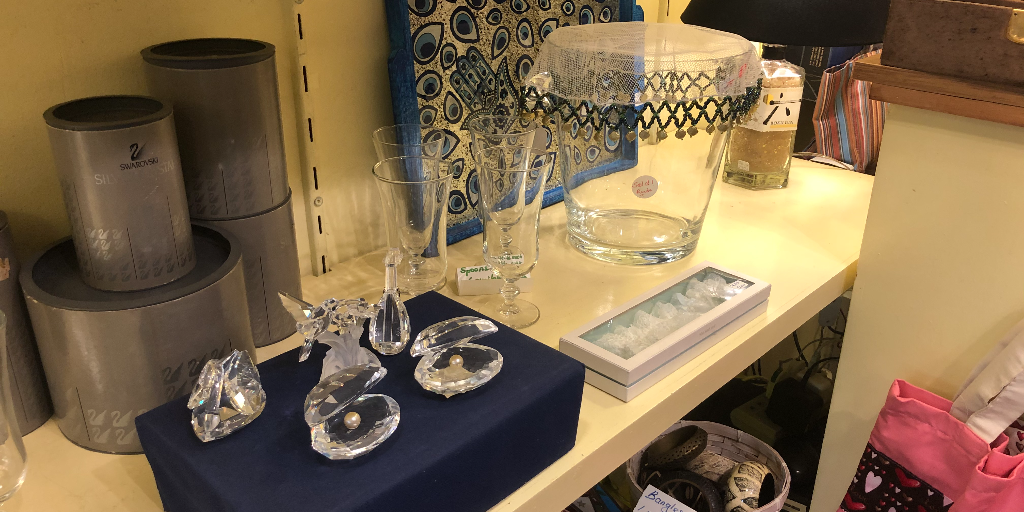
A Space Rich with Stories
When asked about the best part of running a thrift shop, Nashat didn’t hesitate, saying it was “meeting lovely people.” The shop isn’t just about the items being sold; it’s a social outlet where people can tell their stories and get to know each other on a deeper level.
Hossam, Nashat, and Florio recalled an incident where two young women entered the shop at the same time, each one looking to sell their dresses. In an ironic twist, they both instantly fell in love with each other’s dresses and actually ended up swapping.
Another 91-year-old customer once came with a set of beautiful, hand-stitched nightgowns from her trousseau dating back to the 1940s. She even came in with the hand-stitched dress she had for her doll when she was a child.
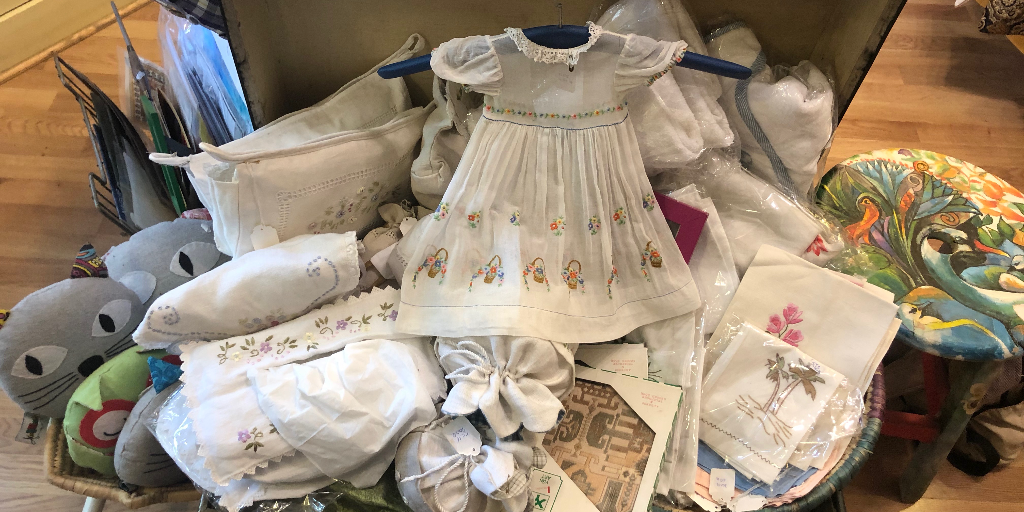
Hossam noted that sometimes when one of the regulars walks into the shop, she can immediately recommend the right item for them. “It’s because we get to learn about them and their lives, and they even enjoy telling us about where they ended up debuting the outfits they bought,” she added. She also talked about how interesting it is to see someone come in and pick several different items without knowing they all came from the same seller.
A Stigma Dying Down
The shop’s clientele is varied in terms of age and nationality, but the scarcest segment would be older Egyptian women, some of whom have no problem selling their items but would not opt to buy something pre-loved. However, more and more young women now prefer to browse thrift shops instead of malls; showing that the stigma of shopping secondhand may soon come to an end.
“There’s a huge difference in the stigma; when I first started working at The Space, most of the clients were foreigners. Now, we have a lot of Egyptian clients,” Florio noted.
She added: “The young women who come here understand the concept of the shop and have awareness about the importance of sustainability. They also want to find something unique and not something they’d just find en masse.” Nashat added that increased learning about sustainability in schools is also a contributing factor.
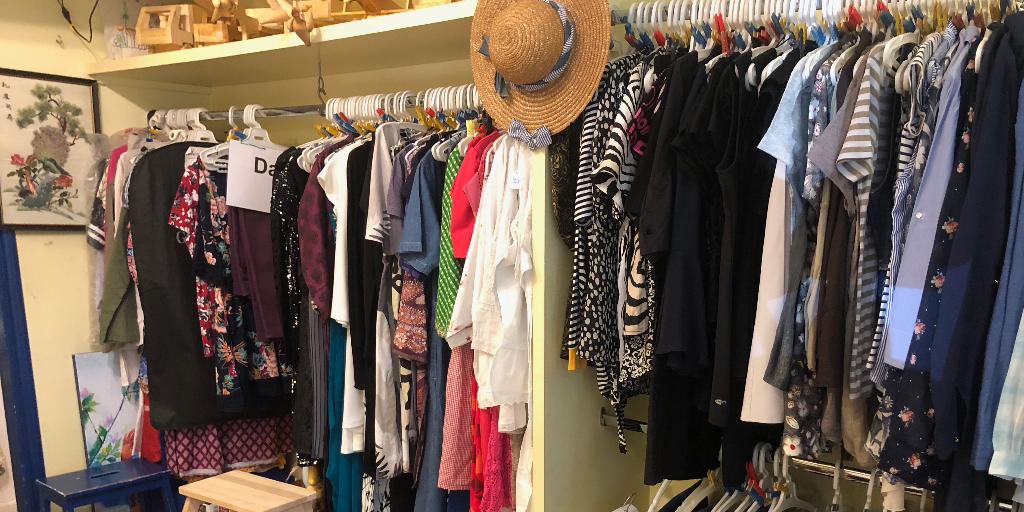
“My main goal is to create a successful model so young people can pick up the same idea, and we’re willing to share all our knowledge with anyone who does it. To me, a sign that we’ve achieved our goal would be if we see other Spaces appearing in Egypt,” Nashat said.
“Kerima had a concept in mind and she made it come true; that’s the main success,” Florio added.
The Space is located at Building 14, Street 210, Degla, Maadi.
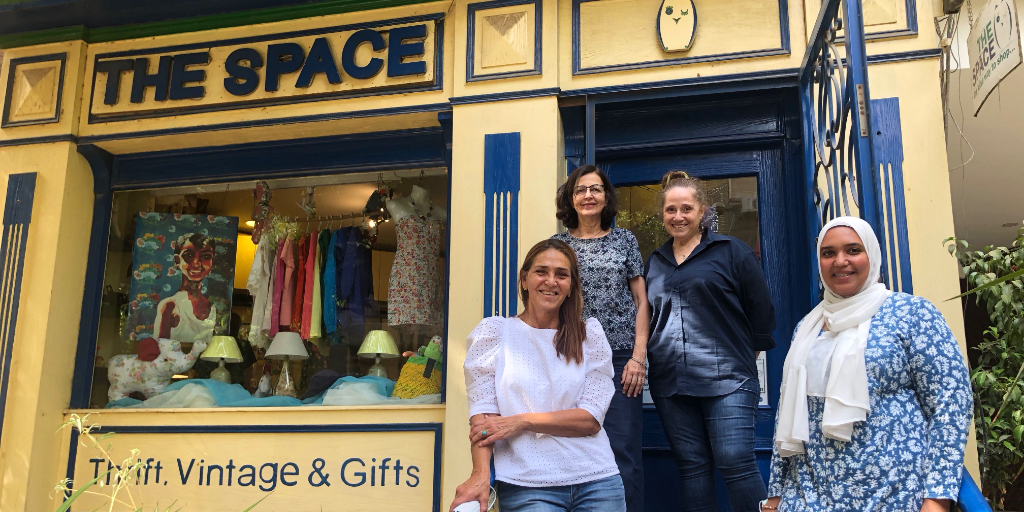




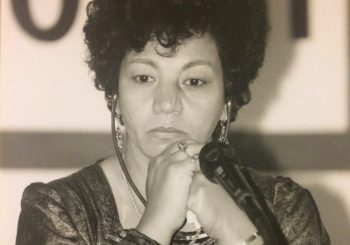

Comments (10)
[…] Meet the women who are taking Egypt one step closer to sustainable development […]
[…] Source link […]